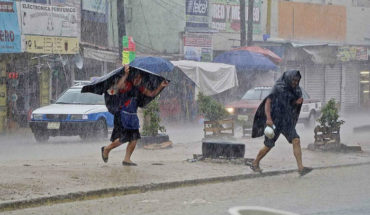In this century the main changes in educational policy have been triggered by the student movements of 2006 and 2011. For decades our educational system drags acute problems of low quality of school learning, decontextualization and scarce relevance of teaching, and persistent inequality and social segregation of educational results, not corrected but marginally by the school. Resulting in a significant ineffectiveness of its doing, which, in addition, if compared with the public per capita financial contributions of the country, these are not consistent with those of equivalent countries that achieve higher educational results.
The crisis “of government of the government” of education lashes out at the Chilean State at its different levels (subnational and national), being complex and multidimensional, and although its ultimate causality exceeds the sector, it has been fed by the gradual and systematic loss of public institutional capacity to solve important demands in this field.
The student events of 2006 create the political conditions to change the “straitjacket of the LOCE” process that unfortunately was late, implying a high social cost for the country until today not recovered, and that is summarized in that “education was so devalued by the reform of 1980 -in dictatorship- and by the political system and society, that to date – more than 40 years later – still does not recover its previous and necessary status.”
In a silent way, dictatorial politics reformulates from its foundations and in all its dimensions the role of the State and its role in education, the criteria of operation and allocation of resources, and the formative values that sustain the educational system. A process that remains without major variants for more than three decades and that still has important cultural enclaves in sectors that should not function in the neoliberal logic, but that having benefited economically from the model, give the support to inhibit its changes. This is reflected in: (i) that the principles of preeminence of the private, individual values and the economic continue to be dominant in the organization of the educational task, even by the State that is required to privilege private doing, and (ii) that its institutionality operates with a series of normative and organizational aggregates, scarcely coherent, that impact on the results of their task, causing their low effectiveness, squandering important degrees of legitimization and recognition of citizens towards the public.
The loss of legitimacy is linked to the fact that the neoliberal system installed efficient control mechanisms, simple and practical, based on the fact that the successes of educational policy are due to the fact that the private sector cares more than the public about education, a sentence that has little empirical support but is effective in making citizens believe that maxim. instead of -the latter- addressing the reasons for the incontrovertible impact in the Chilean case, of the social and cultural capital that the school cannot correct -but exceptionally- among other reasons because for more than three decades it has operated with market organizational criteria, without knowing how to compete, financially diminished and with legislation that obstructed public behavior that was not “market”, And to compete well in that creed it was necessary to abandon the essence of the public, that is: to be guarantor of the right to education of and for all, regardless of their social status.
The second, its loss of legitimacy, comes from the sum of the above, resulting in low effectiveness, and in paying more attention to the formal issues of the bureaucratic rational than to transcendent values of the formative process, as an institutional response to explain the insufficient knowledge of the root causes of the most significant educational problems. To this is added the inheritance and validity of a public bureaucratic apparatus – not exempt from the political clientelism of the party alliances of the day – where the main agent does not adapt to social and knowledge demands, meaning a loss of key functions that are the responsibility of the Ministry of Education, distributed today in various institutions that make the operational process in this field slow and dysfunctional. and also because the Ministry has incorporated new units in an inappropriate organizational scheme (often agency) and that with the changes shows signs of an ineffectiveness, endorsed in a transversal culture of itsMembers who, it seems, do not observe that as a result they have undermined their capital of credibility and legitimacy.
The educational policy component is the greatest orphanhood of Governance. It is based on logic the neoliberal short-termism that dominates our practice, which instead of taking charge of a structural background that must be analyzed, competes “in the short-term code”, blaming each other -respectively- for what happened, instead of attending to the demands of citizens, tired of the “game of musical chairs” or “we are angels in the government and demons in the opposition”. Historically, there has not been all the interest required by governments to illustrate, train and develop the capacity for critical and autonomous thinking of citizens.
Despite the deterioration of the governance of the education sector, we still do not discuss in depth the development model and the problems that afflict the silent majorities, today exacerbated by partial / lax solutions or definitely no solution. The State as a tool for transformation and greater social equity has been insufficiently effective. Their answers have not been up to the causes, generalizing in citizens the perception / belief of distrust of the irremediable. This loss of confidence in the State originates the dominant search for individual rather than group solutions, deconstructing the feble social pact that we still support.
In this scenario, we believe, the State agent still has a reputation to promote the acceptance of public governance in order to address the greatest challenges and exercise government more effectively. This implies a significant reconversion of its discourse and action, based on the legitimacy of governance based on the normative order of the State and the political regime, however, having to assume explicitly and publicly the current gaps in the knowledge system that burden the effectiveness of its task. Therefore, the narrow margin of governance available to the State, which if there is no profound change in public institutions that sustains its legitimacy and that decisively impacts the effectiveness of its actions, is difficult to recover its capacity to “govern the Government in national education.”
Because of this, it would be good to ask ourselves about how to reorganize sectoral and territorial public institutions. Starting with a Ministry that assumes effectiveness as an intransifiable, integrated and coherent principle in the functional and organizational with the public and private school sector, which is questioned if we need the current territorial institutionality with the new format of public education, and how to relate and enhance local Education Services with regional governments, how to increase the degree of responsibility and autonomy of schools in the pedagogical task and, also, if higher education has to continue in the ministry, among many other dilemmas.
Follow us on
The content expressed in this opinion column is the sole responsibility of its author, and does not necessarily reflect the editorial line or position of El Mostrador.





